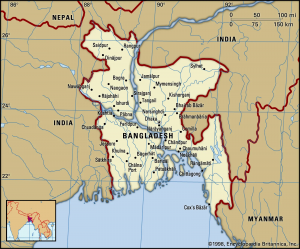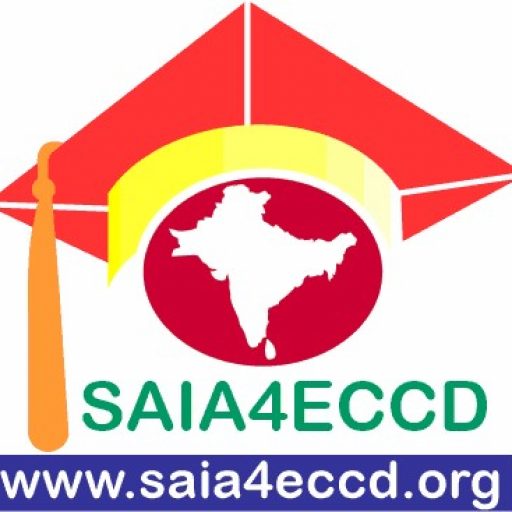Bangladesh, country of South Asia, located in the delta of the Padma (Ganges [Ganga]) and Jamuna (Brahmaputra) rivers in the northeastern part of the Indian subcontinent.
The riverine country of Bangladesh (“Land of the Bengals”) is one of the most densely populated countries in the world, and its people are predominantly Muslim. As the eastern portion of the historical region of Bengal, the area once formed, along with what is now the Indian state of West Bengal, the province of Bengal in British India. With the partition of India in 1947, it became the Pakistani province of East Bengal (later renamed East Pakistan), one of five provinces of Pakistan, separated from the other four by 1,100 miles (1,800 km) of Indian territory. In 1971 it became the independent country of Bangladesh, with its capital at Dhaka. 
Bangladesh is a low-lying country that is associated with the types of marshy environments found in tropical areas and river deltas. The region is extremely prone to flooding, particularly during the monsoon season because of the high amount of rainfall. One of the most important rivers of Bangladesh flows southward from the Himalayas through India and into Bangladesh. While in India, this river is known as the Brahmaputra River, but when it enters Bangladesh, it is known as the Jamuna River. It provides a major waterway for this region and empties into the Bay of Bengal.
Contributing to the immense flow of water through the country are the Ganges and the Meghna rivers, which join up with the Brahmaputra River near the sea. The Ganges flows through northern India and is a major source of fresh water for a large population before it reaches Bangladesh. The Meghna is a collection of tributaries within the boundaries of Bangladesh that flows out of the eastern part of the country. The Meghna is a deep river that can reach depths of almost two thousand feet with an average depth of more than one thousand feet. The hundreds of water channels throughout the relatively flat country provide for transportation routes for boats and ships that move goods and people from place to place. There are few bridges, so land travel is restricted when rainfall is heavy.
Despite an overall languishing economy, economic success stories in this poor country do exist. The Grameen Bank has been working to empower women in Bangladesh for many years. The bank issues microcredit to people in the form of small loans. These loans do not require collateral. Loans are often issued to impoverished people based on the concept that many of them have abilities that are underutilized and can be transformed into income-earning activities. About 96 percent of these loans are to women, and the average loan is equivalent to about one hundred dollars. Women have proven to be more responsible than men in repaying loans and utilizing the money to earn wealth. The loan recovery rate in Bangladesh is higher than 98 percent. Microcredit has energized poor women to use their skills to make and market their products to earn a living. More than five million women have taken out such loans, totaling more than five billion dollars. This program has energized local women to succeed. It has been a model for programs in other developing countries.
